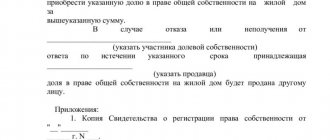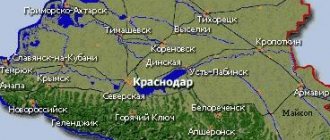According to the law, in particular the law on cooperation, housing cooperatives are an association of persons whose activity is to build a house. Each person who is a shareholder receives living space in the form of an apartment. Cooperative housing becomes property only if all requirements are met, including full deposit of share funds. Registration of ownership rights is necessary for independent disposal of your property.
The process has several nuances that distinguish it from similar procedures with other real estate properties.
What is a cooperative apartment
For any actions with property, state registration is required. An example would be the sale of real estate in a housing cooperative. A cooperative apartment is considered to be a piece of real estate that is located in a house built through the association of a number of persons with the allocation of living space. If all obligations and conditions are fulfilled, the person is considered the owner. The necessary conditions:
- membership in a cooperative;
- housing use;
- full payment of shares;
- absence of violations that led to exclusion from the cooperative.
Important! A person has rights to real estate even without state registration, for example, if the cooperation has existed since the times of the USSR. But under the law, carrying out various transactions with housing requires the availability of certain documents, including registration of property. This is due to the fact that in order to carry out certain procedures, in particular division or sale, it will be necessary to withdraw it from the cooperative for your personal use.
Basis of ownership is based on membership in a housing cooperative. A person receives the right in full only after paying the share contribution in full, that is, state registration is necessary for actual confirmation of title, which will be required in various processes related to housing.
It turns out that corporate housing is considered an object that is built jointly with the invested funds of shareholders who are members of the cooperation.
How does ZhNK work?
I had a general idea of how a cooperative works. Members of the cooperative contribute a certain amount monthly to the common pot, and with this money they buy housing first for one member of the cooperative, then for the second, third, and then in turn. But there were still many questions, and I went with my husband to the first meeting with the manager of the ZhNK.
Kazan ZhNK works on the basis of a local developer and sells apartments only from this developer. You can choose any apartment: one-, two- or three-room. To join the cooperative, you need to pay an entrance fee of 10 thousand rubles. While you remain a member of the cooperative, you pay membership fees of 1 thousand rubles per month.
ZhNK has two accounts. One receives membership and entrance fees; the cooperative spends this money on its needs: employee salaries, taxes, rent, and business needs. The second account receives the initial and monthly payments for the apartment. This account is called a mutual fund. The cooperative can spend money from the mutual fund only on the purchase of housing and nothing else.
The minimum amount of the initial contribution to the mutual fund is 30% of the cost of housing. If the shareholder has contributed 30%, the cooperative reserves an apartment for him from the developer, and it is removed from sale. In order for a housing cooperative to buy housing for a shareholder, you need to contribute at least 50% of the cost of the apartment. After purchasing the apartment, the shareholder continues to pay shares and membership fees until he pays the entire cost. In November 2015, when I joined the cooperative, installment plans could be issued for 10 years, but now the period has been reduced to 7 years.
The Central Bank, tax authorities and shareholders monitor the targeted spending of funds. Every year, an independent auditing company checks the financial documents of the cooperative and draws up a report: how much money went into the accounts of housing cooperatives, where it was spent, how many apartments were purchased, whether the cooperative has debts to shareholders or other creditors. The cooperative sends the auditors' report to the Central Bank, the tax service and posts it on its website. Anyone can download the report and look at it themselves or show it to a specialist.
When a shareholder joins a ZhNK, the shareholder’s last name, first name, patronymic, his INN are entered into the Unified State Register of Legal Entities (USRLE), and the number and date when changes were made to the Unified State Register of Legal Entities are indicated. These changes are registered with the tax office. Extract from the Unified State Register of Legal Entities and check whether information about you is included.
Features of buying and selling a cooperative apartment
Cooperative housing has a number of features that appear when buying or selling. Nuances:
- The main act of title is a special certificate, which records the full payment of the share. This paper is obtained from the chairman or accountant of the cooperation. The certificate indicates that the person has the right of ownership;
- You will need a certificate of ownership and an extract from the Unified State Register;
- the extract is issued after a written application to Rosreestr, and certificates are no longer issued, but those issued have full legal force;
- the contract must be drawn up correctly and not have unacceptable terms;
- absence of housing and communal services debts, including to the housing cooperative itself. This can be confirmed by a certificate from an accountant.
Before the sale, the seller must not only draw up all the acts, but also write out the persons who are registered in this living space.
Read also: Measures to support large families in 2021
Actions if the share was paid before 1997
There is an opinion that privatization of a cooperative apartment is not required if the share contributions were fully repaid before 1997. In reality, the differences relate to the procedure for confirming property rights.
In 1997, a document appeared at the legislative level on the registration of real estate and the creation of the Unified State Register of Real Estate. Until then, the registration procedure took place through the BTI.
Therefore, if contributions were paid before 1997, registration of ownership is limited to obtaining a certificate from the Bureau of Technical Inventory . If desired, the owner of square meters can register with the Unified State Register of Real Estate.
A more preferable option is to have an entry in the Unified State Register of Real Estate . Therefore, even if the contributions were paid before 1997, it is better to still contact Rosreestr and register your property rights.
Rights of the owner of a cooperative apartment
After paying the due funds and receiving the property, the person receives a number of rights. Among them:
- the ability to use the premises and its purpose according to your wishes;
- transfer of an object for use to another person on the basis of free use, rental agreement or lease;
- the right to exchange housing with another member of the cooperative, if both agree.
It is worth considering that the rights of the owner are limited by the charter of the cooperative, as well as its regulations.
When registering your legal rights and receiving legal documents, it is possible to carry out various operations related to the donation, sale or division of housing. But such procedures are specific, and therefore require extracts from Rosreestr.
Any issues that cannot be resolved within the settlement agreement can be litigated through the court system. Such cases are especially common during inheritance or divorce. For the latter option, it is necessary that the housing was purchased during the marriage.
General concepts
The property of a housing construction cooperative is one of the types of collective property. It assumes that participants unite on a voluntary basis to build an apartment building and its further use. The property of a housing construction cooperative includes:
- land plot;
- apartment house;
- additional building structures created at the expense of the cooperative;
- unit trust.
Is it possible to privatize a cooperative apartment?
Privatization refers to the public housing stock, which is used by citizens on the basis of rent, including social rent.
The cooperative object is initially the property of the residential complex, which does not allow privatization. Another difference is that the state fund allows all residents to register and share shares, while a cooperative-type apartment is the property of the shareholder after all funds have been deposited.
The object will be considered legal property only at the construction stage. At the same time, all economic and residential facilities, as well as the territory, will be the common property of all shareholders represented by a cooperative of citizens or legal entities.
It turns out that privatization is not necessary, since ownership is obtained through other processes.
Pyramid or not?
Definitely, Best Way is not a pyramid, but only to the extent that a pension fund, insurance fund or the state as a whole is not a pyramid. This is not a financial pyramid in the style of MMM, but rather a pyramid in the style of Avon or Oriflame.
Why? There is a real product - an apartment. It is registered as property. Everything is fair.
However, the speed of advancement in turn depends on the number of shareholders of the cooperative. Roughly speaking, apartments are purchased for previous shareholders at the expense of new ones. The more new clients the residential complex has, the faster the queue moves and the faster apartments are purchased.
In the case of Best Way, there is no danger that the influx of investors will end and the pyramid will fall apart. After all, there are no payments as such at the expense of newly arrived “adepts”. Even if suddenly there is not a single client left, the last shareholders will pay for the apartment until it is bought out. And then the residential complex will simply disband.
So this is, rather, network marketing, and not MMM, albeit a very aggressive one.
Registration of ownership
Registration is carried out after the house is put into operation and all necessary funds have been paid. It is necessary to draw up papers for property through registration in the Unified State Register of Real Estate. Standard order:
- collection of documentation and payment of receipts with state duty;
- transfer of the application package;
- After completion of the procedure, the received documents are taken away.
Each stage has its own characteristics.
List of documents
For the registration procedure, you need to collect a full package of papers. It will include:
- applicant's passport. If the procedure is carried out by a proxy, then it is necessary to provide two passports and a power of attorney, which will spell out all the powers of the legal representative;
- certificate indicating full payment of the share. It must have the signatures of the chairman and accountant;
- USRN extract;
- a copy of the order for living space, which is signed by the chairman;
- a copy of the protocol according to which the person became a member of the association;
- state duty receipt.
The application can be completed on the spot. Additional data that may be required will be papers and acts of cooperation, including the charter, as well as technical documentation for the property.
Important! In a number of regions, an expanded package of papers may be required, which will need to include a list of shareholders, as well as various acts on the formation of cooperation.
If there is a history of housing, for example, the shareholder transferred his share to another even before the construction of the object, you will need to provide executed agreements that recorded this process.
Read also: Land tax in 2021
Where to contact
To make entries in the Unified State Register, you will need to contact the registrar, that is, an employee of Rosreestr. Transfer of documentation is possible using several methods:
- MFC. This method is the most common;
- via postal service with mandatory certification of all copies by a notary;
- through the Rosreestr website. But for this you will need to have an electronic signature. In addition, the service is not available in all regions.
Additionally, there is an appeal to the specialists of the legal office, who draw up all the necessary documentation. This method is suitable for those who cannot do everything themselves. But with this option, you will need to pay for the services of lawyers who will deal with this issue in accordance with the concluded agreement.
Refusal to accept documents is rare, but if there is no passport or factual errors in the documents that are the main ones, the package of papers will not be accepted.
Registration deadlines and state fees
Registration times vary between 7-14 days. The period can be extended only if additional documents are required. You will also need to take into account that postal requests and return delivery of documents may take longer.
The amount of the state duty when registering your right to the specified property is 2 thousand rubles.
Registration result
The registration result will be negative if the documents were collected incorrectly or violations were found. In this case, a second application may be required. If the decision is positive, then the owner receives an extract from the Unified State Register of Real Estate, since the certificates have been canceled and are no longer issued.
What difficulties may arise and how can they be solved?
Now I have to buy a little more than 10 square meters from the cooperative or pay 774,260 rubles at prices for January 2020. Over four years, our family’s financial situation has improved: our daughter works abroad, my husband and I began to earn 2 times more. Therefore, we are not afraid of a sharp jump in real estate prices. Even if the minimum payment doubles, it will not be burdensome for us. The apartment is currently empty, but if necessary we can rent it out. Rent money can be used to cover monthly payments.
A much greater danger is the bankruptcy of the cooperative. The apartment remains the property of the housing cooperative; in the event of bankruptcy, it will be sold to pay off debts. By law, shareholders are fifth-degree creditors, so I’m unlikely to receive the full amount of money paid into the mutual fund.
So far the cooperative has not raised any concerns. It is developing successfully and attracting new shareholders. If alarming facts appear, I will take out a consumer loan, pay off the debt to the cooperative and transfer the apartment to myself.
Problems of registration of cooperative property
Several problems may arise during the registration process. The main situation is that the shareholders will actually be users of real estate, which in the general format refers to the property of the cooperative .
It is for this reason that donation or sale is not possible until ownership is confirmed in the form of registration. To complete the registration, you must provide the government agency with a full package of documents, which will also contain information about the cooperative itself. If these documents have been lost, they will need to be restored. In some cases, confirmation of rights is carried out through the judicial system.
The main problem is considered to be the stage of collecting papers, since various certificates will be required, which are prepared with the help of an accountant and the chairman, as well as obtaining papers related to the activities of the cooperative. But in practice, certificates may turn out to be changed and not registered in the prescribed time and manner. Because of this, there are delays in registering your rights.
Please note that in most cases, if problems arise with documents, court decisions cannot be avoided.
Why did you choose ZhNK out of all the options?
In 2015, I inherited about 1.5 million rubles.
At that time, the daughter lived in rented apartments, and at the family council they decided to invest money in her housing. With this amount we could buy a small family on the outskirts of Kazan or a one-room apartment in the suburbs. Neither option suited us. We couldn’t get a mortgage because my husband and I are both freelancers, we work under civil law contracts (CLA) with different customers, and we don’t have a permanent job. My daughter just got a new job, so she couldn’t count on a mortgage either. We didn’t want to delay the purchase - in a year, due to inflation, this money would not be enough for even half of a one-room apartment - so we turned to a realtor. We agreed that he would monitor advertisements for sale, and if an inexpensive apartment appeared, he would immediately inform us. The realtor warned that the amount was small and finding a suitable option would be difficult. He suggested that we consider buying an apartment in installments through a housing and savings cooperative: there is no overpayment for interest and documents from work are not needed.
Who is the owner of the cooperative apartment?
The owner is the shareholder. In some cases, an apartment is considered joint common property acquired during marriage. In this case, the living space will be their common one, but in the shares established according to the contributed funds.
A minor who lives in the specified living space cannot be evicted, but after reaching legal age, one of the family members can transfer his share to him. But this will require the absence of prohibitions in the charter of the residential complex and the consent of the spouse, who is the second shareholder.
Read also: Decriminalization of Article 282 of the Criminal Code of the Russian Federation
Important! Until the object is put into operation, the owner is the legal entity carrying out the construction.
Who is the owner of the cooperative?
The owner of a housing construction cooperative can be considered a person who:
- He is a member of the cooperative.
- He uses an apartment allocated by the cooperative.
- Paid the share contribution in full.
- If a citizen made payment of the contribution before marriage, then the apartment will be considered completely his property.
- If a citizen paid part of the share contribution, then got married, and after that the remaining part was paid, then the spouse in the event of divorce and division of property will claim a share. In this case, the share that was paid during the marriage will be subject to division.
- If a housing cooperative participant paid a share contribution while married, then both spouses will be the owners, even if one of the spouses is not a member of the cooperative.








